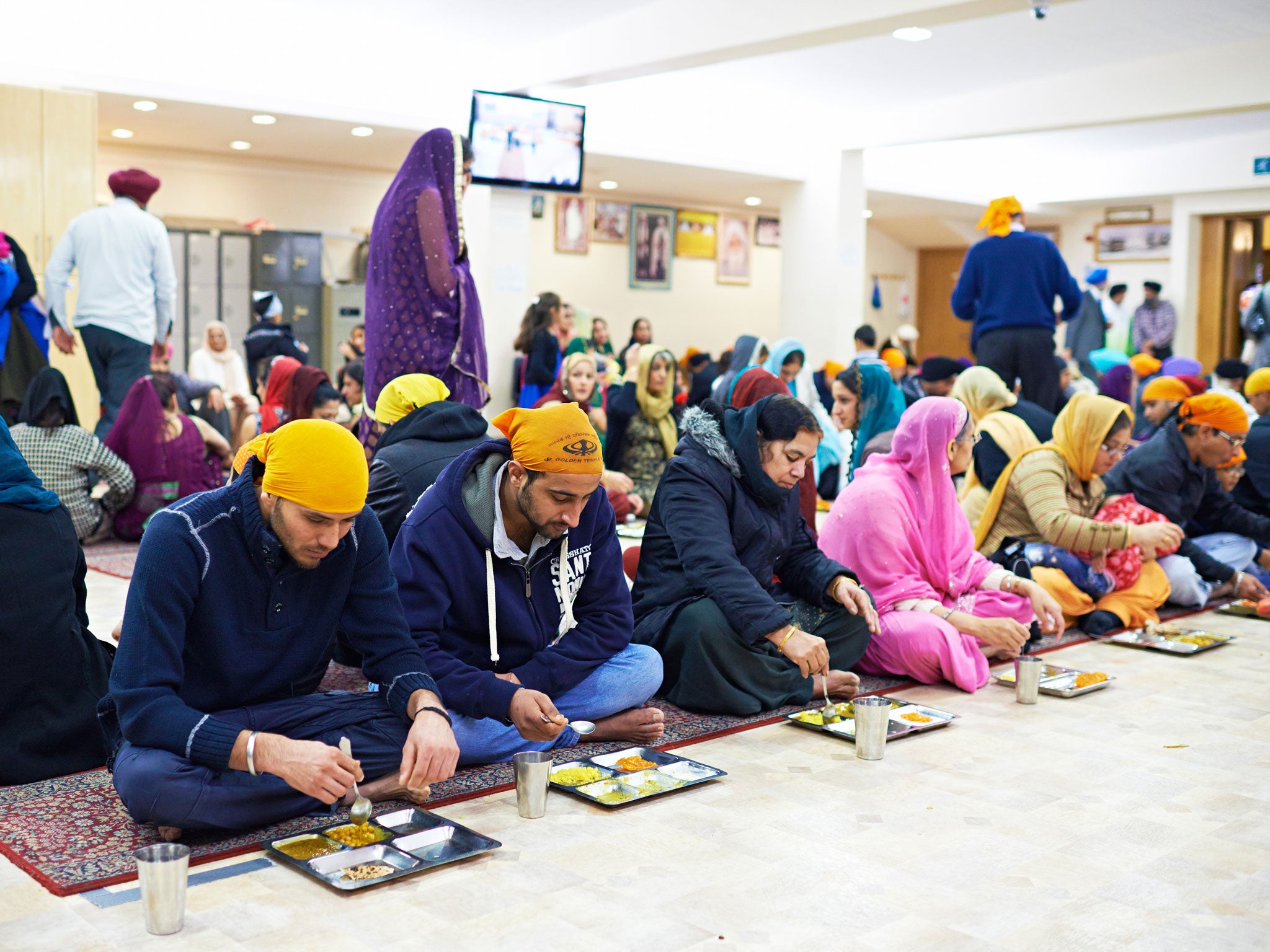Gurdwaras-turned-food banks: Sikh temples are catering for rise in Britain’s hungry
Each week across the UK, around 5,000 vegetarian meals are served to the needy

Your support helps us to tell the story
From reproductive rights to climate change to Big Tech, The Independent is on the ground when the story is developing. Whether it's investigating the financials of Elon Musk's pro-Trump PAC or producing our latest documentary, 'The A Word', which shines a light on the American women fighting for reproductive rights, we know how important it is to parse out the facts from the messaging.
At such a critical moment in US history, we need reporters on the ground. Your donation allows us to keep sending journalists to speak to both sides of the story.
The Independent is trusted by Americans across the entire political spectrum. And unlike many other quality news outlets, we choose not to lock Americans out of our reporting and analysis with paywalls. We believe quality journalism should be available to everyone, paid for by those who can afford it.
Your support makes all the difference.It is lunchtime at the Karamsar Gurdwara, where worshippers are tucking into the free food. But Sikhs are not the only ones enjoying the temple meals. Religious leaders report that an increasing number of non-believers are visiting their place of worship to eat, treating them as food banks while the effects of austerity and economic slump bite.
The Sikh Federation UK estimates that around 5,000 meals are now served to non-Sikhs by Britain’s 250 gurdwaras each week. They say the meals have been a lifeline for homeless people and overseas students swamped in debt.
Harmander Singh, who worships at the Karamsar Gurdwara in east London and is a spokesman for the Sikhs In England think-tank, said: “It’s noticeable: more people coming in and more people coming frequently. Some are working in low-paid jobs, cannot afford lunch and come here to subsidise living costs. They are also women with kids.”
He said that Sikhs welcome anyone into the gurdwara as long as they are not drunk, they remove their shoes and cover their head, adding: “It’s not a free buffet, it’s a way of serving the community.”
In the Karamsar Gurdwara’s dining area, most people sit on the floor while eating. The food is made round the clock by volunteers and funded by donations. In Sikhism, only vegetarian food is served in the gurdwara so the cuisine includes lentils, roti Indian bread, vegetables, yoghurt and Indian sweets.
Foodbanks fed 346,992 people across Britain in the UK last year, according to the Trussell Trust. The Sikh temples cannot help that many people, but the service is welcomed.
Among the 6,000 visitors a week lunching at the Karamsar Gurdwara was a group of overseas medical students.
One student from China, who wished to remain anonymous, said: “My friend brought me here. I found it very welcoming and peaceful. People were very friendly. They are taking care of me. I like the variety of the food. I haven’t seen this before I came to England. People seem to be very nice.”
Another student from India, who is Catholic, said: “For the last 10 days we have come here regularly. They have a welcoming attitude. People don’t discriminate. I was surprised to see a mini Punjab here. The food is like home-cooked.”
Amrick Singh Ubhi of the Nishkam Centre in Birmingham and vice-chair of the Council of Sikh Gurdwoaras, explained how their local community group does outreach work for people worried about visiting a place of worship.
“Nishkam Help is one example of a project to help feed people in the centre of Birmingham which has had to extend its provision to three nights a week and we have supported the initiation of similar programmes with gurdwaras in Leeds and Glasgow.
“The Birmingham Community Support Network has been set up to deal with the increase in demand especially as a result of the welfare reforms.
“We are hearing and seeing an increase of other nationalities frequenting gurdwaras specifically for langar.
“We have to realise that while we see our respective places of worship as a sanctuary, not all people will. We see that people of other faiths and none do mix, but there is always that apprehension of “the other” and until we break down those barriers and start working together that will remain so.”
Join our commenting forum
Join thought-provoking conversations, follow other Independent readers and see their replies
Comments